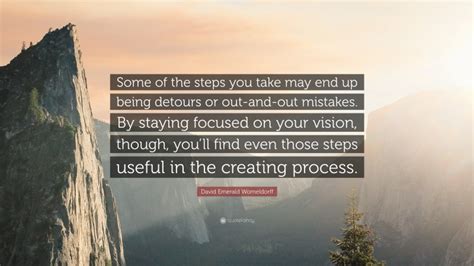A Quote by Aleksandr Solzhenitsyn
Power is a poison well known for thousands of years. If only no one were ever to acquire material power over others! But to the human being who has faith in some force that holds dominion over all of us, and who is therefore conscious of his own limitations, power is not necessarily fatal. For those, however, who are unaware of any higher sphere, it is a deadly poison. For them there is no antidote.
Quote Topics
Acquire
Antidote
Any
Being
Conscious
Deadly
Dominion
Ever
Faith
Fatal
Force
Higher
His
Holds
However
Human
Human Being
Known
Limitations
Material
Necessarily
Only
Others
Over
Own
Poison
Power
Power Over Others
Some
Sphere
Them
Therefore
Those
Thousands
Thousands Of Years
Unaware
Us
Well
Well Known
Were
Years
Related Quotes
A man preacheth that sermon only well unto others which preacheth itself in his own soul. And he that doth not feed on and thrive in the digestion of the food which he provides for others will scarce make it savoury unto them; yea, he knows not but the food he hath provided may be poison, unless he have really tasted of it himself. If the word do not dwell with power in us, it will not pass with power from us.
The predominant teachings of this age are that there are no limits to man's capacity to govern others and that, therefore, no limitations ought to be imposed upon government. The older faith, born of long ages of suffering under man's dominion over man, was that the exercise of unlimited power by men with limited minds and self-regarding prejudices is soon oppressive, reactionary, and corrupt. The older faith taught that the very condition of progress was the limitation of power to the capacity and the virtue of rulers.
Love is power, the purest power and the greatest power: Love is God. Nothing can be higher than that. But this power is not a desire to enslave others, this power is not a destructive force. This power is the very source of creation. This power is creativity. And this power will transform you totally into a new being. It has no concern with anybody. Its whole concern is to bring your seeds to their ultimate flowering.
I have never been able to conceive how any rational being could propose happiness to himself from the exercise of power over others... An honest man can feel no pleasure in the exercise of power over his fellow citizens.... Power is not alluring to pure minds and is not with them the primary principle of contest.
For loving, working, and creative people to throw off the yoke of power it is necessary to abolish power itself, not merely to make the yoke comfortable. Where some have power, others do not, and the two classes persist. A free society is where all have power-power over and responsibility for their own lives, power and reason to respect the lives of others. This is also a society without classes, a society of human beings, not rulers and the ruled.
When we harbor negative emotions toward others or toward ourselves, or when we intentionally create pain for others, we poison our own physical and spiritual systems. By far the strongest poison to the human spirit is the inability to forgive oneself or another person. It disables a person's emotional resources. The challenge...is to refine our capacity to love others as well as ourselves and to develop the power of forgiveness.
A certain type of person strives to become a master over all, and to extend his force, his will to power, and to subdue all that resists it. But he encounters the power of others, and comes to an arrangement, a union, with those that are like him: thus they work together to serve the will to power. And the process goes on.
I call this the Fundamental Problem of Political Economy. How do we limit the power that idiots have over us? ... [Milton] Friedmans insight is that a market limits the power that others have over us; conversely, limiting the power that others have over us allows us to have markets. Friedman argued that no matter how wise the officials of government may be, market competition does a better job of protecting us from idiots.
Chief among the forces affecting political folly is lust for power, named by Tacitus as "the most flagrant of all the passions." Because it can only be satisfied by power over others, government is its favorite field of exercise. Business offers a kind of power, but only to the very successful at the top, and without the dominion and titles and red carpets and motorcycle escorts of public office.
It is unfortunately none too well understood that, just as the State has no money of its own, so it has no power of its own. All the power it has is what society gives it, plus what it confiscates from time to time on one pretext or another, there is no other source from which State power can be drawn. Therefore every assumption of State power, whether by gift or seizure leaves society with so much less power; there is never, nor can be, any strengthening of State power without a corresponding and roughly equivalent depletion of social power.
In order to exert influence over people, there were other things that could be used besides love. Knowledge seemed to be an equally strong force, perhaps even stronger. Whoever possessed knowledge not only had power over the changeable passions of people, but also power over their thinking, over their minds, hearts and souls.







































